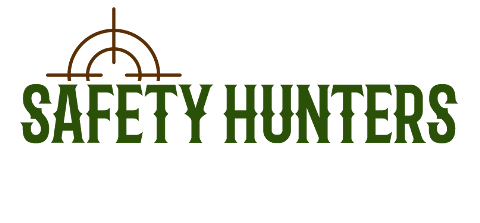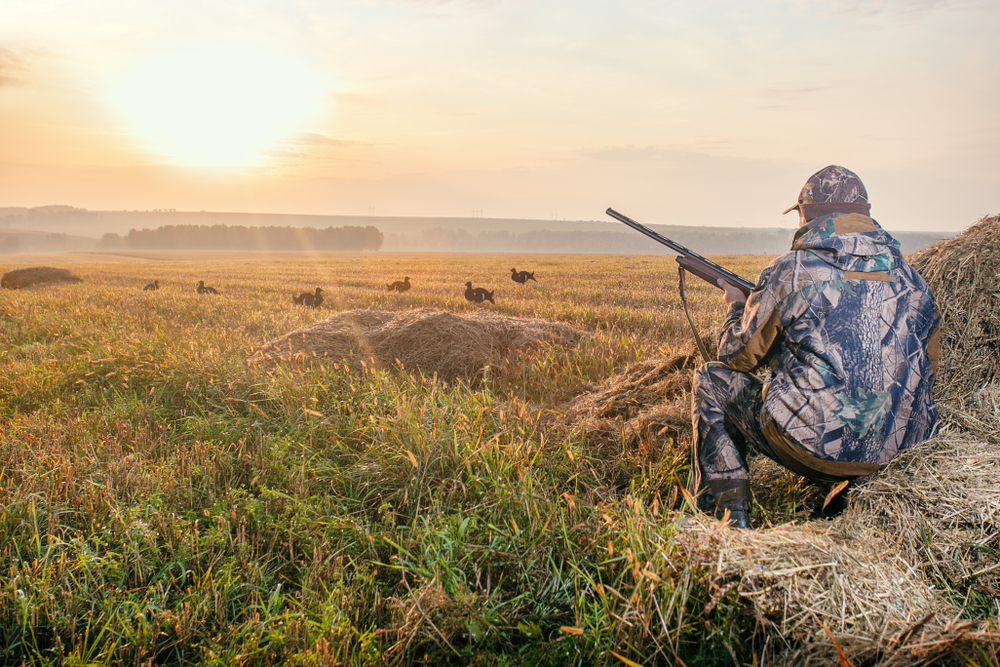Last Updated on November 14, 2022 by admin_hunter
The best way to get started hunting is by starting off safely and smartly. The following are some helpful tips and tricks to make sure you have a successful first trip into the wild:
Get a hunting license
If you want to hunt, get a hunting license. The process is different from state to state and province to province, so check with your local game warden or the Department of Natural Resources for specific information on how to obtain one.
You can also consult the Department of Fisheries and Oceans (DFO) for information about federal regulations on hunting in Canada.
Find a place to get started hunting
Finding a place to hunt may be the most important step. It is possible to find good hunting spots on your own, but it will take you longer and your success rate will be lower. If you can’t locate any land yourself, contact the local hunting clubs or your state’s wildlife agency to see if they have any leads for you.
If these options are unavailable to you, consider contacting private landowners in your area who might allow hunters on their property—but be aware of any restrictions that might come with this option!
Before heading out into the wilds, make sure that you’re fully aware of all laws and regulations regarding hunting in your state or municipality.
Buy the right gear
- Buy the right gear.
- It’s important to purchase hunting gear that fits your needs, size, and style. For example, if you’re a woman trying to hunt deer with a full-size rifle in the field—and you don’t have any experience shooting at things—you may want to rethink that decision before investing in the rifle. It could end badly for both you and the animal you are trying to shoot!
- There are plenty of other things besides guns and bows worth investing in when preparing for a successful hunting trip: boots and binoculars are two examples. Both will help make sure that all goes smoothly when out on an expedition; plus they’ll last longer than cheap imitations made overseas at big box stores!
- When it comes time for scaling up (or down) these items into larger packages such as backpacks or tents though it can be hard because there aren’t many options available online right now but there will be soon!”
Take hunter’s safety training
The first thing you should do is take a hunter’s safety course. You can find these courses at schools or sports stores, or even online. The class will teach you about the dangers of hunting and how to avoid them.
- What to do if you get lost or hurt: You will learn where your safe zones are on the map, how to signal for help in case of an emergency, and what supplies to bring with you when traveling long distances from home (for example, extra food).
- What to do if you see a bear: Bears can be dangerous animals, so it’s important that everyone knows how best to keep themselves safe during their hunts. Knowing what bear repellent smells like will help alert others that there might be bears nearby so they know not to approach until they’re gone again!
- How not get shot by another hunter: Hunting groups often go out into remote areas where they won’t likely encounter other hunters; however this isn’t always the case so we must keep in mind how best way avoid getting hurt due another person’s mistake – whether intentional or not!
Borrow equipment
If you don’t own a rifle, borrow one from a friend or family member who hunts. If they won’t lend you their gun, rent one from a local hunting supply store. You can also buy used equipment and supplies at pawn shops, second-hand stores and auctions — just make sure you’re buying from reputable dealers who have been certified by the Department of Natural Resources (DNR).
If your budget doesn’t allow for brand new gear right away, consider going online to search for discount equipment sites like eBay or Amazon Marketplace. Many sellers offer discounted prices on used goods as well as special offers on new items that are about to become unavailable in retail stores nationwide due to overstock or discontinued models.
Visit a shooting range beforehand
One of the best ways to figure out what you need is to visit a shooting range and try out some different guns for yourself.
When you’re there, ask them if they have any targets that are similar to what you’ll be hunting with. If not, practice with the same type of target that your prey will be (ie: deer targets for deer hunting). This way, when it comes time to shoot at an animal in the wild, you can picture it on the target before firing off your shot.
One thing I would recommend doing is practicing with both rifles and bows before going out into nature—that way you’ll have more confidence in both types of weapons when it comes time for real action!
Scouting and planning your hunt is essential for success
Scouting and planning your hunt is essential for success. It’s important to know where the animals are before you go hunting, rather than just heading out blindly and hoping for the best. Scouting helps you find good spots to hunt, which can be as simple as a place with good visibility or a spot that’s easy to get in and out of safely. It also allows you time to plan out your shots or set up traps or snares before spending all day sitting in one spot waiting for an animal to wander by so that you can shoot it with your rifle or bow.
Scouting will save you time and energy by giving you information about an area’s terrain, weather conditions, what species live there (and how many), whether there are any predators around (or how close/dangerous they might be), potential safety hazards such as quicksand traps or sinkholes (which aren’t limited only towards animals!), etcetera…
Know where you’re going to field process your game, if you choose to do so
If you choose to field process your game, it’s important that you know where you can do so. Some areas have restrictions on the type of weapons allowed and the distance from homes or schools.
It is also possible that it will be illegal if there are no hunting regulations in your state or province. For example, there may be a rule stating that all carcasses must be transported to a butcher shop for processing.
If you break any of these rules, penalties could include fines and confiscation of equipment.
Ask other hunters for tips and advice, especially other new hunters like you
Asking other hunters for tips and advice is a great way to learn. You’ll be able to learn from their mistakes, ask them about the best hunting grounds in your area and get pointers on how to prepare for a hunt.
There is no shame in using pre-made blinds or stands to help you get an advantage over your prey, especially as you get started
When you are just starting out, it’s okay to use pre-made blinds and stands. It is even better if you have a friend who will let you use their tree stand or ground blind. You can even buy these at stores like Cabelas, Bass Pro Shops and other hunting supply stores.
If you don’t want to spend money on one of those things then it is time to learn how to make your own tree stands or ground blinds!
Go at your own pace and don’t be discouraged if it takes you longer than expected to bag an animal on your first trip out
Keep in mind that it will take time to learn the skills needed to be successful. You’ll also get better with practice, and as you go along, you’ll learn more about your prey and their habits.
Remember that hunting is about more than bagging an animal. It’s about being outdoors in the wilderness, learning new skills and making memories with friends and family
You may want to start hunting because you’ve heard that it’s a great way to get some exercise and fresh air, but that isn’t the only thing hunting has to offer. Hunting is about more than bagging an animal. It’s about being outdoors in the wilderness, learning new skills — like how to track animals — and making memories with friends and family.
Even if you don’t have any experience with hunting, that doesn’t mean you can’t learn how to do it from scratch! Just take some time to read up on what’s involved before going out into nature for your first time as a hunter.
Hunting can be a great hobby but you’ll have more success by starting off safely and smartly
Hunting is a great hobby to get into, but you’ll have more success by starting off safely and smartly.
- Get a hunting license. It’s your ticket to the game, so make sure you have one before heading out into the woods.
- Find a place to hunt. The best places will have an abundance of wildlife and minimal human activity, so check online reviews before heading out on your own or with friends. Also keep in mind that some areas are closed during certain seasons, so be sure to check those regulations as well!
- Buy the right gear for the task at hand: You don’t need anything fancy here; just make sure it fits comfortably and won’t break under pressure (this includes guns too). Keep in mind that any weapon should only be used once before cleaning/replacing it entirely due to safety reasons (so no sharing)! If possible borrow pieces from experienced hunters instead since they would know better than anyone else what works best for them specifically (also don’t forget about spending time practicing beforehand!)
Conclusion
Hunting is a great hobby and it can be a lot of fun. However, it’s important to remember that success doesn’t come easily. As we’ve discussed here today, there are many things you need to do before hunting season even begins so that when the time comes you’re ready for action.

